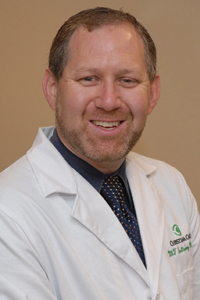Christiana Care plays key role in heart failure trial


A new drug that helps the heart contract more easily shows promise for people with stable systolic heart failure, according to an international study that included Christiana Care.
The results of trials involving omecamtiv mercarbil show the drug improves cardiac function by safely triggering a protein that aids in heart-muscle contraction, according to an article published in the Aug. 20 issue of The Lancet, the prestigious British medical journal. Mitchell Saltzberg, M.D., medical director of the Heart Failure Program at Christiana Care’s Center for Heart & Vascular Health, is an author.
Systolic dysfunction of the heart is due to poor left ventricular contraction.
“We are honored to be one of only two sites in the United States to have been chosen to participate in this trial,” Dr. Saltzberg says. “This drug represents the first medication of its kind that promotes more effective heart muscle contraction but does not appear to have the same toxicities of prior drugs.”
Christiana Care was selected based on the quality and dedication of the research team at the Center for Heart & Vascular Health and its commitment to continually evaluate new treatment options for heart failure patients.
Heart failure is a condition in which the heart can’t pump enough blood to meet the body’s needs. Leading causes are coronary artery disease, hypertension and diabetes. About 5 million people in the United States have heart failure and 300,000 die each year.
Because the heart can’t do its job properly, people with heart failure frequently suffer from fatigue and shortness of breath. Blood and fluid can back up into their lungs. Excess fluid swells their legs and ankles.
Available only by intravenous infusion, omecamtiv mercarbil is the first in a therapeutic class called myosin activators. The drug helps the heart to work more efficiently by increasing myocardial contraction, without boosting oxygen consumption.
A complementary study involving 34 healthy male volunteers was followed by the phase II trial, a double-blind, placebo-controlled, crossover, dose-escalation study in which 45 patients with heart failure received 151 infusions of the drug or placebo at various times.
Although the findings are promising, the study results don’t apply to patients with severe heart failure, whose hearts are not pumping adequately even when they are resting.
Large-scale trials are under way to determine whether the improvement in contraction benefits patients by easing their symptoms and improving their quality of life, as well as its impact on mortality and morbidity.
“We are looking forward to being part of the research process to evaluate this exciting new therapy for our patients who require hospitalization for worsening heart failure,” Dr. Saltzberg says.
“Due to our cutting-edge research, heart failure patients in our community have access to many new treatment options to combat their disease.”